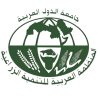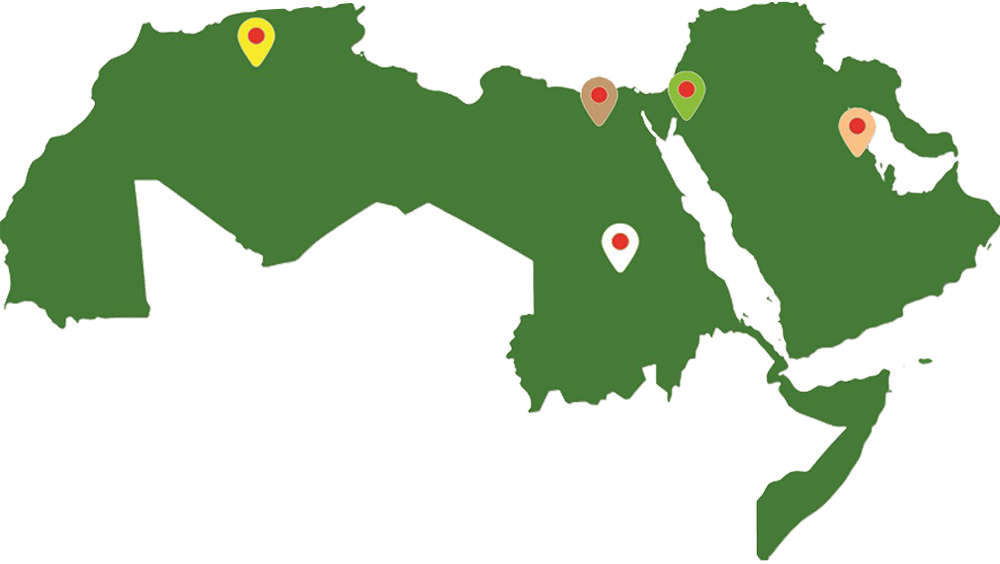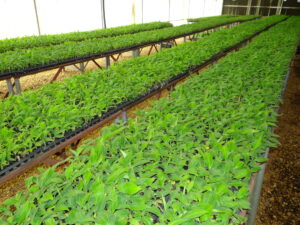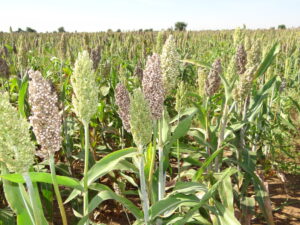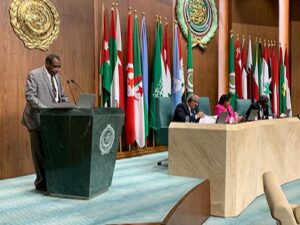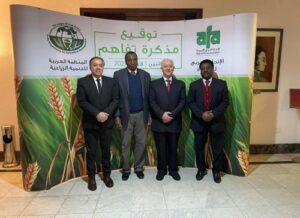Organizational Chart
A- The General Assembly shall consist of representatives of all member states, and representation shall be at the level of ministers or their representatives. Each member shall have one vote.
B- The presidency of the Assembly shall be in rotation according to the alphabetical order of the member states of the League of Arab States, and the term of the presidency shall be two years.
C- The General Assembly shall meet once every two years in a regular session. The General Assembly may hold extraordinary sessions at the request of one-third of the member states or the Executive Council. The President of the Assembly shall determine the place and date of the meeting in consultation with the Director-General of the Organization.
D- Two-thirds of the members of the General Assembly constitute the legal quorum for its meetings, and all decisions are taken by a majority of the members present.
General Assembly powers:
The General Assembly is the legislative authority of the organization. It is responsible for approving the strategy and general policies that the organization follows, planning and following up on its programs and activities, and monitoring its technical, financial, and administrative work. It may take whatever decisions and procedures it deems necessary to achieve the organization’s purposes within the limits of the founding agreement, and in particular:
A- Approving the organization’s development plans, work programmes and budget every two years, and referring them to the Economic and Social Council.
B- Election of members of the Executive Council.
C- Electing members of the Financial Supervision Authority for a period of two years.
D- Appointing statutory auditors and terminating their contracts.
E- Appointing the Director-General of the Organization and the Assistant Director-General in accordance with the provisions of the unified basic system for employees of specialized Arab organizations.
- Forming permanent and temporary committees and approving their recommendations.
G- Establishing regional offices for the organization in the regions of the Arab world and canceling them with the approval of the Economic and Social Council.
H- Approval of the Executive Council report submitted to it by the Director-General.
i- Reviewing and approving the organization’s final accounts.
J- Approving the organization’s budget every two years and submitting it to the Economic and Social Council.
K- Regulating cooperation between the organization and countries and international bodies.
l- Amending the agreement establishing the organization in the manner specified in Article (14).
M- Accepting new members or the withdrawal of one of its members.
Executive Council:
A- The Executive Council shall consist of seven members elected by the General Assembly from among its members on a regular basis for a period of two years, such that each of the four Arab regions shall be represented by two countries, and each member of the Council shall have one vote.
B- The Executive Council shall elect from among its members a Chairman and a Vice-Chairman for a period of two years.
C- The Executive Council shall meet in a regular session once every six or eight months after the approval of the General Assembly. The Chairman of the Council shall determine the place and date of the meeting in consultation with the Director-General of the Organization.
D- The Executive Council may hold extraordinary sessions upon the invitation of its President or upon the request of the Director-General of the Organization, or at least four of its members. The invitation shall specify the agenda of the extraordinary session and the place and time of its convening.
E- The Executive Council meeting shall be considered legal if more than half of the members are present, and its decisions and recommendations shall be issued by a majority vote of the members present. In the event of a tie, the side of the President shall prevail.
Executive Council Competencies:
The Executive Council shall serve as the Board of Directors of the Organization, and shall be responsible for the following:
- Proposing the organization’s work programs and submitting recommendations thereon to the General Assembly for approval.
- Study the draft of the organization’s work plan and budget for two years, then refer it to the General Assembly for approval.
- Studying the organization’s final accounts and submitting a recommendation regarding them to the General Assembly for approval.
- Studying the annual reports submitted by the organization’s general management, regarding the implementation of activities and means of spending, and providing appropriate guidance regarding them.
- Work with the General Administration to provide the necessary financial funding for the organization.
- Taking all means to achieve the organization's goals.
- Follow up on the implementation of the General Assembly’s decisions and follow up on the implementation of the organization’s plans and programs.
The General Management consists of the Director General of the Organization and the main, technical and administrative staff. Public Administration Specialties:
1- Preparing a detailed annual plan for training and development and allocating the necessary funds for its implementation within the budget.
2- Assisting the Director-General in implementing programs and decisions, preparing an action plan for the organization that includes annual projects and programs, and submitting periodic follow-up reports that include an evaluation of what has been implemented and presenting them to the Director-General.
3- Contacting the competent authorities in member states, specialized organizations and agencies, and all other departments, in accordance with the principles established by the Director-General.
4- Preparing for the General Assembly and Executive Council meetings and participating in the meetings in which the Director General deems it important to participate.
5- Follow up on its administrative and financial procedures and notify the financial management immediately of any activity that entails financial burdens.
The Director General is the head of the general administration, The General Assembly shall appoint him in accordance with the provisions of the amended agreement establishing the organization for a period of four years, renewable only once. In a manner that does not violate the rules and conditions stipulated in the unified statute for the employees of specialized Arab organizations and is consistent with the criteria and conditions that must be met by the candidate for the position of Director General, which are determined by a decision of the General Assembly.
Terms of reference:
The Director General shall be responsible before the General Assembly and the Executive Council for all the work of the general administration. It manages the organization’s business. It works to implement the resolutions and programs approved by the General Assembly and the Executive Council. He represents the organization in conferences and before various bodies, states and countries, defends its interests, contracts and litigates on its behalf. It also performs all tasks entrusted to it by the General Assembly and the Executive Council. In particular, it undertakes the following:
1- Appointing the employees of the organization in accordance with the provisions of the unified statute for the employees of specialized Arab organizations.
2- Submit a periodic report to the Executive Council and the General Assembly every two years on the work of the general administration.
3- Preparing draft work plans for the development organization, and supervising its implementation.
4- Preparing a draft plan and work program for the organization for two years, and presenting it to the Executive Council and the General Assembly.
5- Preparing the draft annual budget of the organization every two years.
6- Submitting an annual report on the final accounts approved by the legal auditor and the Financial Supervisory Authority of the organization and submitting it to the Executive Council, and then to the General Assembly.
7- Preparing research and reports requested by the General Assembly or the Executive Council.
The Director General reports directly to the following administrative divisions:
Assistant General Manager.
General manager’s office.
advisors.
Internal control unit.
Performance appraisal unit.
Information Systems Unit.
Management of agricultural integration and food security.
Regional offices.
Arab Technical Institute for Agriculture, Fisheries and Environment.
The General Assembly shall appoint the Assistant Director General from among the candidates of the Member States for a term of four years, renewable for one time only. Taking into account the rule of trading between member states and on the basis of competence and distinguished experience, He is renewed for a second term based on a proposal from the Director General.
With the assistance of the Director General, he supervises the work of the general administration and the conduct of the organization’s business, and assumes the position of the Director General in the event of a vacancy.
The Assistant General Manager shall be responsible to the Director General for carrying out the following tasks:
1- Assisting the Director General in supervising the implementation and follow-up of approved plans, programs and projects in accordance with the frameworks and directives specified by the Director General.
2- Preparing a proposal for the organization’s budget and submitting it to the Director General.
3- Supervising all administrative and financial work in accordance with the applicable laws and regulations and directives of the Director General, And submit monthly reports in this regard.
4- Preparing a proposal for the annual technical program plan and budget, and submitting it to the Director General.
5- Supervising the implementation of the Technical Programs Department for its work in accordance with the approved plan and the directives of the Director General, Submitting monthly reports.
6- Preparing an annual proposal for training and capacity building programmes, And studies and consultations / and submitting it to the Director General for accreditation.
7- Supervising the follow-up of the implementation of training and capacity-building programs, in addition to studies and consultations. Preparing a monthly report in this regard to be submitted to the Director General.
8- Assisting the Director General in coordinating between the administrative and financial affairs departments. technical programmes, training, studies and consulting, And the regional offices of the organization at the level of implementation, follow-up and evaluation.
9- Proposing technical, educational and training projects and programs that are compatible with the objectives of the organization. In order to achieve additional financing for it.
10- Any other tasks assigned to him by the Director General.
The Assistant General Manager supervises the following administrative divisions:
- Department of Finance and Administration Affairs.
- Technical program management.
- Management of training, studies and consulting.
- Food security and food safety management.
The General Manager’s office performs the following tasks:
- Transmitting directives, instructions, decisions and circulars issued by the Director General. and follow up on its implementation.
- Follow up all incoming and outgoing correspondence to and from the Director General.
- Preparing and presenting issues to the Director General in coordination with the relevant authorities.
- Provide all necessary reports, data and information to the Director General in his interviews and meetings.
- Supervising the documentation of documents, records and documents related to the meetings of the General Assembly, the Executive Council and the committees.
- Supervising the organization and management of documents and archives.
- Coordination with departments to organize the participation of the General Manager in conferences, seminars and meetings.
- Participate in the preparation of the Arab, regional and international conferences and meetings that the organization attends at the invitation of its partners.
- Carrying out all matters related to public relations.
- Preparing an annual proposal for a media program that covers all the activities of the organization and implementing the approved one.
- Prepare to do all issues of public relations.
- Carry out any work assigned to him by the General Manager.
The office supervises the units assisting the general manager, which are:
- External Relations Unit.
This unit performs the following tasks:
- Following up on regional and global developments in areas related to the organization’s work, which helps in developing strategies and plans.
- Proposing ways of coordination between the organization and its Arab, regional and international counterparts.
- Feasibility study of cooperation with external agencies and the extent of the return on the organization’s performance from these agreements.
- Proposing a partnership strategy with external agencies to ensure enhancing the organization’s image and transferring knowledge and expertise to the Arab region.
- Follow up on existing agreements and work to strengthen them by proposing new projects.
- Attracting external funding to implement joint programmes and projects between the organisation and its Arab, regional and international counterparts.
This department performs the following tasks:
- Implementing the unified basic system for employees of specialized Arab organizations.
- Implementing the unified financial and accounting system for specialized Arab organizations.
- Providing services that preserve the organization’s property and that are needed by various departments.
- Management of grants, aid, foreign aid and donations.
- Any other related work assigned to him.
The Department consists of the following organizational units:
- Administrative Affairs and Services Unit.
- Finance unit.
- Computer and Communication Unit
- Public Relations and Media Unit.
- Documents module.
- Grants, Aid and Endowments Management Unit.
The following are the functions of the two units:
- Administrative Affairs and Services Unit:
This unit is responsible for the following tasks:
- Implementing employee affairs regulations and rules.
- Providing the necessary services to the organization’s employees and implementing their social and health care programs.
- Developing a draft job budget based on proposals received from the organization’s departments.
- Preparing a plan for the organization’s needs for various human cadres.
- Follow up on the completion of efficiency reports for the organization’s employees.
- Providing the necessary services for the maintenance of buildings and equipment.
- Providing essential services and resources for the organization’s work.
- Controlling the attendance and departure of the organization’s employees.
- Implementing a periodic maintenance program for transportation, equipment and machinery.
- Organizing and monitoring the movement of the organization’s vehicles.
- Finance Unit:
This unit is responsible for the following tasks:
- Preparing the draft budget based on the proposals of the organization’s departments.
- Establishing rules for implementing the budget in accordance with the decisions of the General Assembly, the Executive Council, the financial and administrative regulations, and the accounting systems in force.
- Follow up on the implementation of budget items after their approval and implement various disbursement operations while fulfilling the conditions and documents accompanying their operations.
- Follow up on the implementation of financial systems, accounting and documentary cycles, and maintain records, books and files required by the nature of the work, in accordance with the periods stipulated in the unified accounting system.
- Preparing financial reports and final accounts for the organization.
- Managing the organization’s incoming financial resources and related funds and improving their utilization.
- Collecting the organization’s funds and revenues from various sources.
- Providing the general administration’s needs for goods and services and following up on inventory and warehouse operations.
- Direct storage operations for various items and related records and inventory.
- Working on controlling permanent and temporary contracts, following up on their operations and replacing them.
- Ensure the accuracy of accounting work.
- Ensure the accuracy of accounting work.
- Studying the reports of the financial controller and the oversight body and expressing an opinion thereon.
- Any other related work assigned to him.
- Grants, Aid and Endowments Management Unit.
- Management of grants, aid and self-financing projects (contractual projects).
- Submitting periodic financial reports to His Excellency the Director-General, donors and funding agencies, as stated in agreements and projects funded by others.
- Follow up on the implementation of cooperation agreements, grants and contractual projects from the financial aspects and ensure their compliance with the regulations and laws in force in the organization and the legal texts and financial implementation conditions contained in the agreements.
- Proposing legal texts for self-financing agreements in line with the regulations in force in the organization, donors and funders.
- Documentation Unit:
This unit performs the following tasks:
- Adherence to the implementation of the document classification system, retention schedules, and the necessary procedures in this regard.
- Carrying out all work related to incoming and outgoing mail to and from the organization.
- Manage and make available documents in accordance with approved procedures.
- Perform any other related tasks assigned by the Director General.
- Public Relations and Media Unit:
This unit performs the following tasks:
- Supporting social aspects and organizing cultural and recreational activities for the organization’s employees.
- Strengthening the organization’s relationship with the community in which it operates.
- Determine the procedures necessary to secure and protect the organization’s assets and resources.
- Preparing visit schedules for the General Administration, sending invitations on various occasions, and preparing places designated for meetings, seminars, and parties in coordination with the relevant authorities.
- Follow up on customs clearance procedures for items imported to the General Administration and ensure obtaining the prescribed exemptions.
- Completing procedures for accommodation, tickets and travel permits for official missions, and receiving and seeing off the organization’s employees and guests.
- Preparing media bulletins and informational documents about the organization’s activities, translating them into living languages, printing them and distributing them.
- Cooperating with the media to cover the organization’s activities inside and outside the headquarters countries. Following up on what is published in the media about the organization and responding to what is raised in it.
- Providing media material for the organization’s website and supervising its translation into living languages. And work to improve the site.
- Providing media coverage for all seminars, meetings and conferences held or participated in by the organization.
- Announcing the organization’s activities and introducing its projects, programs, plans, achievements and various publications.
- Enhancing the organization’s image and publishing reports and statistics related to the organization’s work.
- Computer and Communication Unit:
The unit performs the following tasks:
- Building databases, publishing information and statistical systems and networks, expert systems, and information security programs and maintaining them.
- The following tasks overlap with the tasks of the GIS and Remote Sensing Unit page 19
- Providing information systems to address problems related to the agricultural and fisheries sectors and the environment, to assess risks and to know the level of their threats.
- Analysis, design and development of geographic information systems and remote sensing.
- Contribute to tracking areas exposed or threatened by drought, desertification, floods, forest fires, the spread of transboundary animal diseases and epidemics, in coordination with specialized departments and units.
- Contribute to determining agricultural crop areas and estimating crop yields. To track the situation of Arab food security in coordination with specialized departments and units.
- Providing decision makers with accurate information.
- Preparing a training plan for specialized Arab cadres and qualifying them in the field of information and documentation systems.
This department performs the following tasks:
- Assisting Arab countries in developing sustainable and competitive agricultural production in a way that contributes to the elimination of poverty and hunger.
- Preparing programmes and frameworks that would enhance technical cooperation between Arab countries in the related agricultural, fisheries, environmental and irrigation water fields.
- Proposing and preparing Arab laws and guidelines in the fields of agriculture, fisheries, the environment, and irrigation water, in a manner that serves the preservation of the environment and ecological systems, and the proper exploitation and sustainability of resources.
- Helping countries adapt to climate and environmental changes.
- Establishing and managing specialized Arab networks in the fields of agriculture, both plant and animal, fisheries and the environment, in a manner that serves the preservation of the environment and ecological systems and the proper exploitation and sustainability of resources.
- Proposing programmes to build human capacities in the related technical agricultural, fisheries and environmental fields.
- Proposing capacity building programmes in the field of development and sustainable use of irrigation water.
- Follow up on international agreements related to the agriculture, fisheries and environmental sectors.
- Working to coordinate and enhance Arab positions in the fields of agriculture, fisheries and the environment in regional and international forums.
- Conducting studies and providing technical support in the related agricultural, fisheries and environmental fields.
- Contributing to the prosperity of the Arab countryside, in a way that serves to increase the income of small farmers and empower women and youth in the Arab countryside.
- Any other tasks assigned by the Director General.
The Department consists of the following organizational units:
- Agricultural, Environmental and Climate Change Programs Unit.
- Fisheries and Aquaculture Program Unit.
- Sustainable Rural Development Unit.
- Agricultural, Environmental and Climate Change Programs Unit:
This unit is responsible for the following tasks:
- roposing and preparing Arab laws and guidelines in the fields of agriculture (plants and animals), fisheries, the related environment, irrigation water, combating desertification, wetland management, and other related fields.
- Assisting countries in preserving the environment and ecosystems and in the proper exploitation and sustainability of resources.
- Helping countries adapt to climate and environmental changes.
- Supervising Arab networks specialized in the fields of plants, animals, and irrigation water.
- Supervising the management of an Arab network for climate change related to agricultural development and food security.
- Proposing national programmes in the fields of agricultural development (plant and animal) and sustainable rural development and following up on their implementation.
- Proposing and preparing Arab laws and guidelines in various plant and animal fields.
- Proposing and preparing Arab laws and guidelines in the fields of development and use of irrigation water, combating desertification, wetland management, and other related matters.
- Collecting and evaluating plant and animal genetic resources data in coordination with the Geographic Information Systems and Remote Sensing Unit.
- Implementation of programs related to the organization’s plan.
- Providing technical support and advice for the conservation, preservation and development of agricultural resources.
- Focus on building Arab frameworks and cadres to advance the process of sustainable agricultural development in coordination with the training unit.
- Conducting studies and providing technical support in the related agricultural, environmental and irrigation water fields.
- Follow up on international agreements and treaties related to agricultural and environmental affairs in coordination with the Foreign Relations Unit.
- Any other related work assigned to him.
- Fisheries and Aquaculture Program Unit:
This unit is responsible for the following tasks:
- Proposing frameworks and mechanisms that would coordinate and enhance cooperation between Arab countries in the fields of fishing and aquaculture.
- Proposing and preparing Arab laws and guidelines related to fish wealth.
- Working to coordinate Arab positions in regional and international forums related to fisheries and aquaculture.
- Supervising the management of Arab networks specialized in fish wealth development.
- Implementation of programs related to the organization’s plan.
- Conducting studies and providing technical support in the fields of fisheries and aquaculture.
- Capacity building and human resources development in coordination with the training unit.
- Follow up on international agreements and treaties related to fish wealth in coordination with the Foreign Relations Unit.
- Any other related work assigned to him.
- Sustainable Rural Development Unit.
- This unit is responsible for the following tasks:
- Proposing national programmes in the fields of agricultural development (plant, animal and fish) and sustainable rural development and following up on their implementation.
- Focus on building Arab frameworks and cadres to advance the process of sustainable agricultural development in coordination with the training unit.
- Contributing to the prosperity of the Arab countryside, in a way that serves to increase the income of small farmers and empower women and youth in the Arab countryside.
- Implementing pioneering projects in the Arab countryside aimed at increasing the income of small farmers, especially youth and women.
- Any other related work assigned to him.
This department performs the following tasks:
- Coordinating with the specialized departments and units in the organization to prepare the organization’s training plan and implement and follow up on the approved ones.
- Coordination and follow-up with all departments and specialized units in the organization regarding the development and implementation of the studies and consultations program in the organization.
- Studying all requests received by the organization regarding conducting studies or providing consultations of all kinds (short and long-term) in coordination with the specialized departments and units in the organization and submitting comprehensive proposals regarding their cost and implementation mechanism.
- Working to attract external funding to conduct studies, provide consultations and technical support, and implement training programs for the benefit of others.
- Building partnerships with Arab and regional countries, organizations and funding institutions in areas related to the administration’s work.
- Any other tasks assigned by the Director General.
The Department consists of the following organizational units:
- Training unit.
- Studies and Consultations Unit.
- Geographic Information Systems Unit.
- Training unit:
This unit is responsible for the following tasks:
- Implementing, monitoring and evaluating training activities and programmes included in the organisation’s work plans.
- Implementing training programmes for government agencies, private sector institutions, civil society organisations, and development, Arab, regional and international institutions, in accordance with the requests of these entities.
- Providing technical and scientific advice in areas related to the development of human resources working in the agricultural sectors inside and outside the Arab region.
- Cooperating with Arab, regional and international institutions and organizations concerned with agricultural development in preparing, organizing and implementing training activities and programs on a contractual basis.
- Any other related work assigned to him.
- Studies and Consultations Unit:
This unit is responsible for the following tasks:
- Preparing feasibility studies for development projects assigned to it through direct requests or through competitions with other expertise houses.
- Coordination with specialized departments and units regarding the implementation of studies and providing consultations.
- Providing specialized studies in the organization’s field of work.
- Preparing strategies in the fields of agriculture, fisheries and environment.
- Providing consultations in the organization’s field of work according to the request of the parties.
- Attracting support, funding and external aid.
- Building partnerships with Arab and regional countries, organizations and funding institutions in areas related to the administration’s work.
- Any other related work assigned to him.
- وحدة الدراسات والاستشارات وحدة نظم المعلومات الجغرافية والاستشعار عن بعد:
This unit is responsible for the following tasks:
- Providing topographic maps and modern satellite images of agricultural areas in the Arab world.
- Supporting environmental studies through the use of GIS and remote sensing technology.
- Providing the necessary agricultural and environmental geographical information to support the organization’s projects, activities and reports, in a manner that serves the achievement of sustainable agricultural development in the Arab world.
- Building agricultural and environmental applications using geographic information systems and remote sensing.
- Design and build environmental and meteorological geographic databases for all digital and thematic base maps and satellite images.
- Processing and analyzing satellite images to determine and estimate agricultural production in the Arab world.
- Providing environmental and meteorological information services using remote sensing technology to beneficiaries.
- Organizing and classifying digital map layers and geographic information entered into geographic information databases and creating descriptive information for all layers.
- Archiving all maps, geographical information and satellite images.
- Any other related work assigned to him.
Its terms of reference are as follows:
- Follow up on the implementation of agricultural and fisheries development strategies and food security and food safety programmes in the Arab world.
- Conducting studies, implementing activities, and creating mechanisms that will enhance Arab agricultural integration to reduce the food gap in the Arab world.
- Preparing and issuing periodic reports monitoring the state of Arab agriculture and food security conditions.
- Preparing and issuing annual agricultural and fisheries statistical reports at the level of the Arab world.
- Implementation of an Arab agricultural documentation system.
- Proposing programs to build human capacities in areas related to the work of the administration.
- Disseminating the foundations, principles and practices for establishing and managing agricultural business incubators in Arab countries.
- Supervising the organization’s agribusiness incubators at headquarters and countries.
- Building partnerships with Arab and regional countries, organizations and funding institutions in areas related to the administration’s work.
- Support and facilitate Arab agricultural integration procedures.
- Any other related work assigned to him.
And the administration 3 4Units: (Rearranged according to the change in the structure And the status of specializations)
- Trade, Investment and Partnerships Unit
- Statistics and Documentation Unit.
- Agricultural Integration and Food Security Unit
- Innovation and Business Incubators Unit.
- Food Safety Unit
- Trade, Investment and Partnerships Unit
Agricultural Integration, Food Security and Food Safety Unit:
Its terms of reference are as follows:
- Follow up on the alignment of the Sustainable Agricultural Development Strategy for the two decades (2005-2025) with the 2030 Sustainable Development Goals to identify the countries’ achievements within its framework and prepare a periodic report on it.
- Supporting coordination and cooperation efforts between Arab countries in the areas of agricultural and fisheries legislation and policies and inter-Arab agricultural trade.
- Coordination of Arab policies and legislation in the agricultural and fisheries sector.
- Encouraging investment and promoting projects related to increasing and improving agricultural and food production at the joint Arab national level.
- Follow up on the health and plant health file in Arab, regional and international agreements.
- Any other related work assigned to him.
- Statistics and Documentation Unit :
- Collecting and analyzing Arab agricultural and fisheries statistical data and preparing and issuing comprehensive reports on them.
- Developing, updating and publishing the following statistical periodicals electronically:
- Arab Agricultural Statistics Yearbook.
- Yearbook of fisheries statistics in the Arab world.
- Issuing statistical bulletins on prices of agricultural and other commodities.
- Cooperating with regional and international organizations in the field of exchanging statistics and expertise and coordinating with them.
- Developing an annual training programme that meets the needs of Arab countries in the field of collecting, analysing and publishing agricultural statistics to build the capacities of workers in this field. Preparing electronic bulletins and periodic reports.
- Monitoring, documenting and disseminating the intellectual production issued by the organization and received from regional and international development, research and academic institutions, bodies and organizations.
- Exchange of publications and documents with relevant parties, and strengthening Qatari, regional and international cooperation between Arab, regional and international libraries and documentation and information centres,
- Exchange of publications and documents with relevant parties, In addition to providing the necessary information for the members and experts of the organization and providing ongoing briefing services and providing publications, studies and references.
- Any other related work assigned to him.
- Innovation and Business Incubators Unit:
- Proposing programmes to build human capacities in areas related to the unit’s work.
- Disseminating the foundations and principles of practices for establishing and managing agricultural business incubators in Arab countries.
- Supervising the organization’s agribusiness incubators at headquarters and countries.
- Building partnerships with Arab and regional countries, organizations and financing institutions in the field of entrepreneurship and agricultural incubators.
- Food Safety Unit:
- Follow up on the implementation of the Arab countries’ emergency programme for Arab food security and submit a periodic report on it.
- Support efforts to develop the production and provision of food commodities and improve nutritional conditions and food safety.
- Analyzing the Arab food security situation and preparing an annual report on it.
- Proposing programmes to build human capacities in areas related to the unit’s work.
- Any other related work assigned to him.
The regional offices are the executive arms of the organization in the Arab geographical regions, which are:
- Levant Region Office (Iraq, Syria, Lebanon, Palestine and Jordan).
- The office of the Arabian Peninsula region and its activities cover Kuwait, Saudi Arabia, Bahrain, Qatar, the Emirates, and Oman. and Yemen.
- The regional office in the central region and its activities cover Egypt, Djibouti, Somalia and the United Comoros, As for Sudan, the country of the headquarters of the organization, the general administration covers the activities there.
- The Maghreb region office, covering its activities in Libya, Tunisia, Algeria, Morocco and Mauritania.
The regional offices perform the following tasks:
- Submitting proposals for programs and activities in the countries of the region in accordance with the terms of reference and objectives of the organization.
- Strengthening the relationship and enhancing cooperation between the competent authorities in the countries of the region and the organization.
- Supervising the implementation and follow-up of the programs and activities included in the organization’s action plan in the countries of the region.
- Follow-up on the payment of contributions by the countries of the region to the organization’s budget, as well as arrears, if any. • Work to attract financing and technical support for activities and projects in the countries of the region.
- Preparing reports on the situation and condition of agriculture and food in the region, as well as its developments and trends.
- Submitting monthly reports on the activities of the office to the general administration.
- Carry out any other duties assigned by the General Manager.
The Institute specializes in the following:
- Preparing academic programs for intermediate qualification in the fields of agriculture, fisheries and the environment.
- Preparing the institute to receive high school or agricultural students to study in accordance with the conditions approved by the academic committee of the institute.
- Implementation of the academic program by selecting teachers who meet the conditions set by the Academic Committee.
- Preparing tests, monitoring and documenting results in accordance with applicable procedures in this regard.
- Carrying out all financial and administrative matters in accordance with the systems and regulations in force in the organization.
- Supervising all internal housing requirements at the Institute.
- Coordinating and cooperating with universities and other relevant institutes in order to develop the academic level at the institute.
- Any other tasks assigned by the academic committee.
